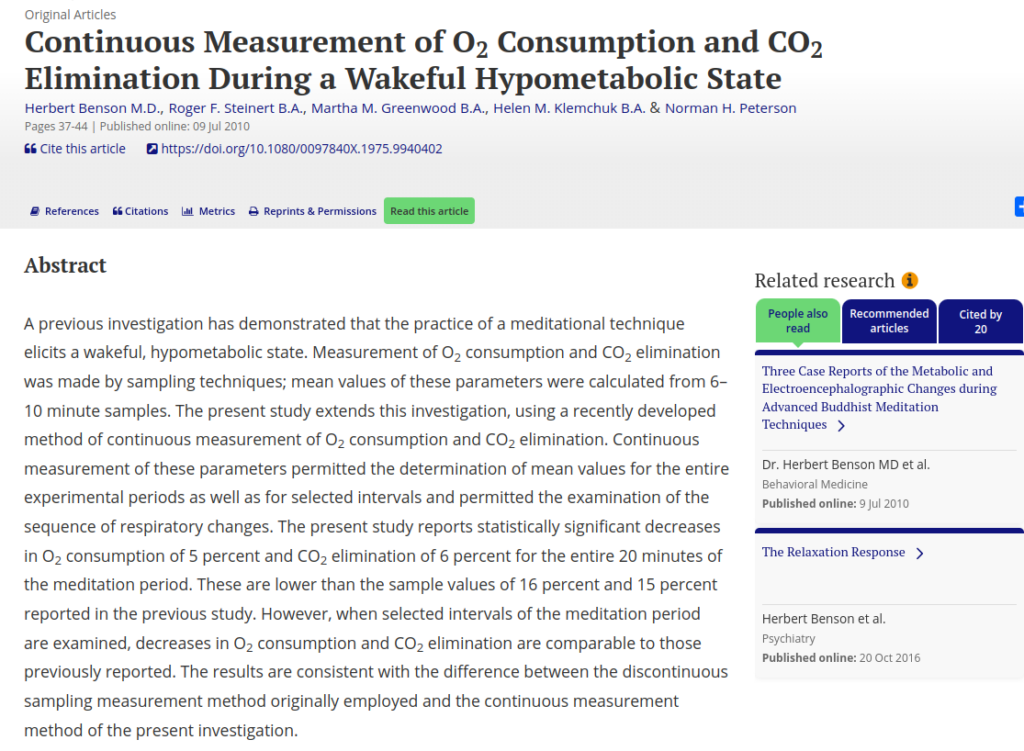A previous investigation has demonstrated that the practice of a meditational technique elicits a wakeful, hypometabolic state. Measurement of O2 consumption and CO2 elimination was made by sampling techniques; mean values of these parameters were calculated from 6–10 minute samples. The present study extends this investigation, using a recently developed method of continuous measurement of O2 consumption and CO2 elimination. Continuous measurement of these parameters permitted the determination of mean values for the entire experimental periods as well as for selected intervals and permitted the examination of the sequence of respiratory changes. The present study reports statistically significant decreases in O2 consumption of 5 percent and CO2 elimination of 6 percent for the entire 20 minutes of the meditation period. These are lower than the sample values of 16 percent and 15 percent reported in the previous study. However, when selected intervals of the meditation period are examined, decreases in O2 consumption and CO2 elimination are comparable to those previously reported. The results are consistent with the difference between the discontinuous sampling measurement method originally employed and the continuous measurement method of the present investigation.
Continuous Measurement of O2 Consumption and CO2 Elimination During a Wakeful Hypometabolic State
Publication
Journal of Human Stress / Behavioral Medicine
Volume 1(1)
Abstract
Web and Email Links
Related Listings
Journal
Behavioral Medicine
Over the last 20 years, medical researchers from a variety of disciplines, including behavioral medicine, neuro-immunology, neuroendocrinology, social medicine, and psychiatry, have converged in an effort to produce greater understanding and acceptance of the effects of psychological factors on physical health. Many in the medical profession have remained somewhat skeptical, claiming that psychological components of healing are largely "folklore", unsubstantiated by hard evidence. The […]
Journal
Journal of Cardiopulmonary Rehabilitation
We previously reported reduced blood pressure, psychological symptoms, and other cardiac risk factors in hypertensive patients who participated in a nonpharmacologic, outpatient behavioral program. The present study is a 3 to 5 year follow-up of 59 (60%) of the same patients (who served as their own controls) to assess continued efficacy of the program. At entry into the study, patients had hypertension for a median of 6 years. Therefore, it is unlikely that placebo effect could expla […]
Journal
PLOS ONE
The relaxation response (RR) is the counterpart of the stress response. Millennia-old practices evoking the RR include meditation, yoga and repetitive prayer. Although RR elicitation is an effective therapeutic intervention that counteracts the adverse clinical effects of stress in disorders including hypertension, anxiety, insomnia and aging, the underlying molecular mechanisms that explain these clinical benefits remain undetermined. To assess rapid time-dependent (temporal) genomic […]

